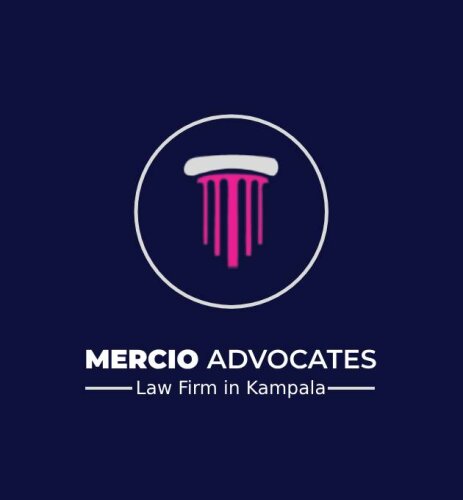Best Civil & Human Rights Lawyers in Kampala
Share your needs with us, get contacted by law firms.
Free. Takes 2 min.
List of the best lawyers in Kampala, Uganda
About Civil & Human Rights Law in Kampala, Uganda
Uganda's capital, Kampala, acknowledges the importance of Civil & Human Rights, as prescribed by the national constitution and international human rights treaties that Uganda is party to. This includes the right to life, equality before and under the law, freedom from discrimination, and the right to a fair hearing. Despite the existence of these laws, there are challenges around their enforcement and occasional violation by both state and non-state actors.
Why You May Need a Lawyer
You may need a lawyer for several reasons such as if you are a victim of discrimination based on your gender, race, religion, or sexual orientation. Similarly, if your rights are violated by law enforcement officers, including unlawful arrest, detention, or torture, a lawyer would be needed. If you are denied access to public services, or if you face repression for participating in peaceful demonstrations, you may require the services of a lawyer.
Local Laws Overview
The Constitution of Uganda under the National Objectives and Directive Principles of State Policy, and articles 20 to 45 provide for Human Rights and Freedoms. Some key aspects of these laws include the prohibition of slavery, torture, or inhuman and degrading treatment, equality, and freedom from discrimination. The constitution also protects freedom of speech, assembly, movement, and religion. However, laws such as the Public Order Management Act 2013 have been criticized for infringing on the freedom of assembly and expression.
Frequently Asked Questions
What actions can be termed as human rights abuses?
Human rights abuses are actions taken by state or non-state actors that violate the rights and freedoms guaranteed by the constitution such as torture, discrimination, unlawful detention, or denial of access to public services.
What can I do if my human rights are violated?
If your rights are violated, you can report the matter to the police, or to human rights organizations. You can also seek legal action through a lawyer to demand justice and reparations.
Can I get legal aid if I cannot afford a lawyer?
Several organizations offer free legal aid services to individuals who cannot afford to pay for a lawyer. These include the Uganda Law Society's Legal Aid Project and the Legal Aid Service Providers Network (LASPNET).
What is the role of Uganda Human Rights Commission?
The Uganda Human Rights Commission is mandated by the constitution to promote and protect human rights in Uganda. It investigates complaints of human rights violations and provides reparations to victims.
Can foreign nationals also claim these rights?
Yes, foreign nationals residing in Uganda are also protected by Uganda's human rights laws, except for certain political rights that are exclusive to citizens.
Additional Resources
Some of the resources you can access for help include the Uganda Human Rights Commission, Human Rights Watch, and Amnesty International. The Equal Opportunities Commission Uganda also plays a significant role in ensuring that everyone's rights are protected regardless of their backgrounds.
Next Steps
If you need legal assistance, the first step is to identify whether your problem is a human rights issue. If it falls under human rights, contact a human rights lawyer or an organization like Uganda Human Rights Commission, Human Rights Watch, or a solicitor from the Uganda Law Society. If you cannot afford a lawyer, reach out to organizations that offer free legal aid.
Lawzana helps you find the best lawyers and law firms in Kampala through a curated and pre-screened list of qualified legal professionals. Our platform offers rankings and detailed profiles of attorneys and law firms, allowing you to compare based on practice areas, including Civil & Human Rights, experience, and client feedback.
Each profile includes a description of the firm's areas of practice, client reviews, team members and partners, year of establishment, spoken languages, office locations, contact information, social media presence, and any published articles or resources. Most firms on our platform speak English and are experienced in both local and international legal matters.
Get a quote from top-rated law firms in Kampala, Uganda — quickly, securely, and without unnecessary hassle.
Disclaimer:
The information provided on this page is for general informational purposes only and does not constitute legal advice. While we strive to ensure the accuracy and relevance of the content, legal information may change over time, and interpretations of the law can vary. You should always consult with a qualified legal professional for advice specific to your situation.
We disclaim all liability for actions taken or not taken based on the content of this page. If you believe any information is incorrect or outdated, please contact us, and we will review and update it where appropriate.
Browse civil & human rights law firms by service in Kampala, Uganda
Kampala, Uganda Attorneys in related practice areas.

















